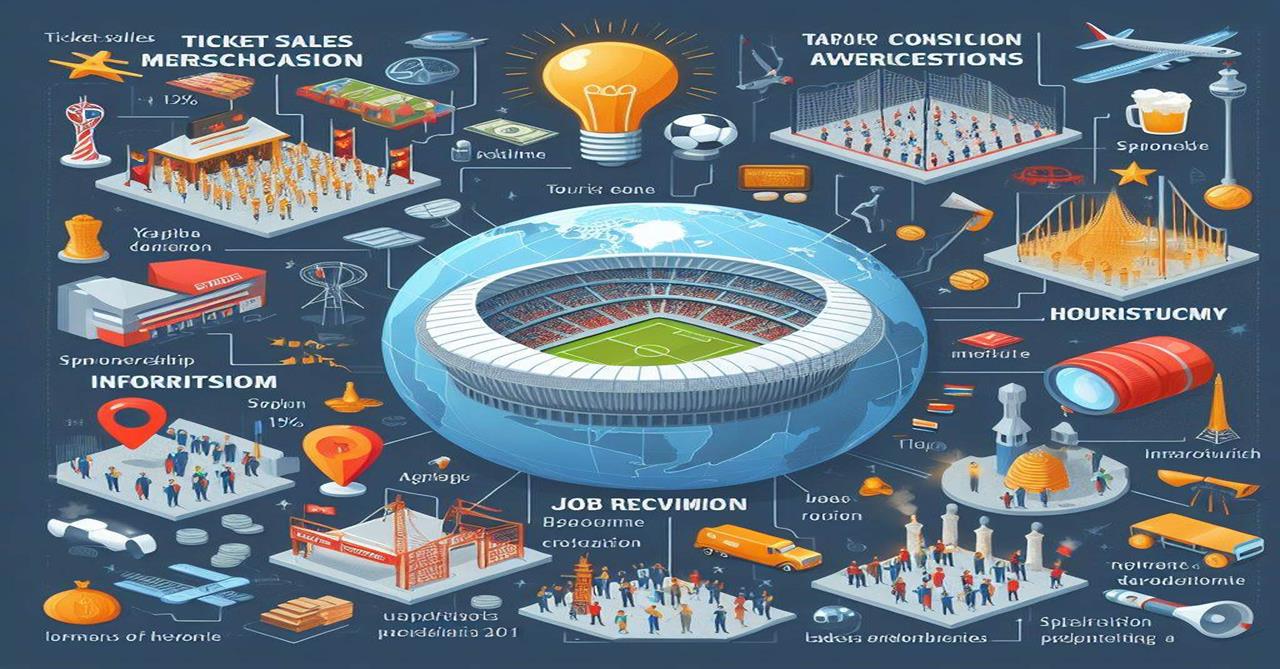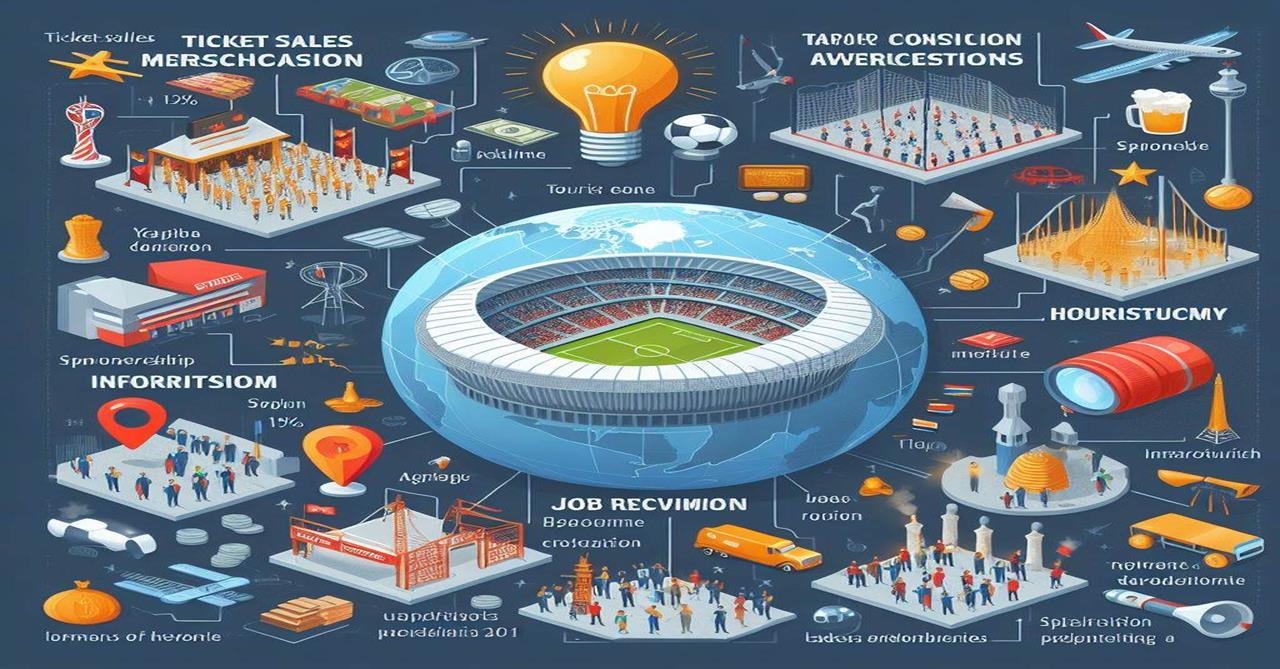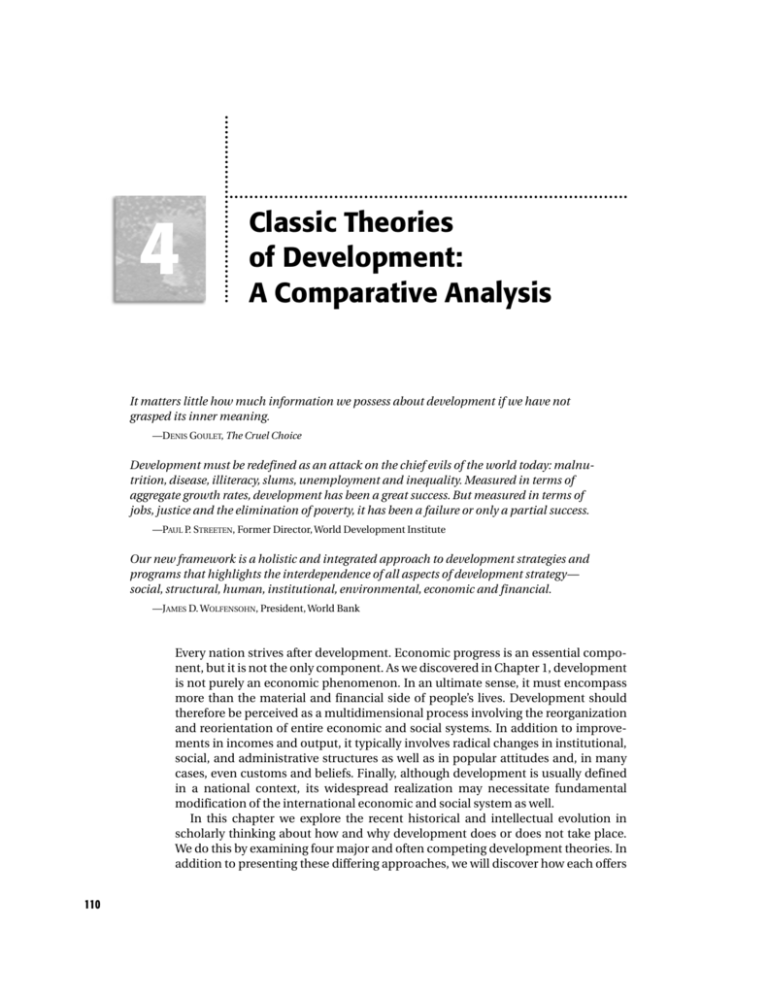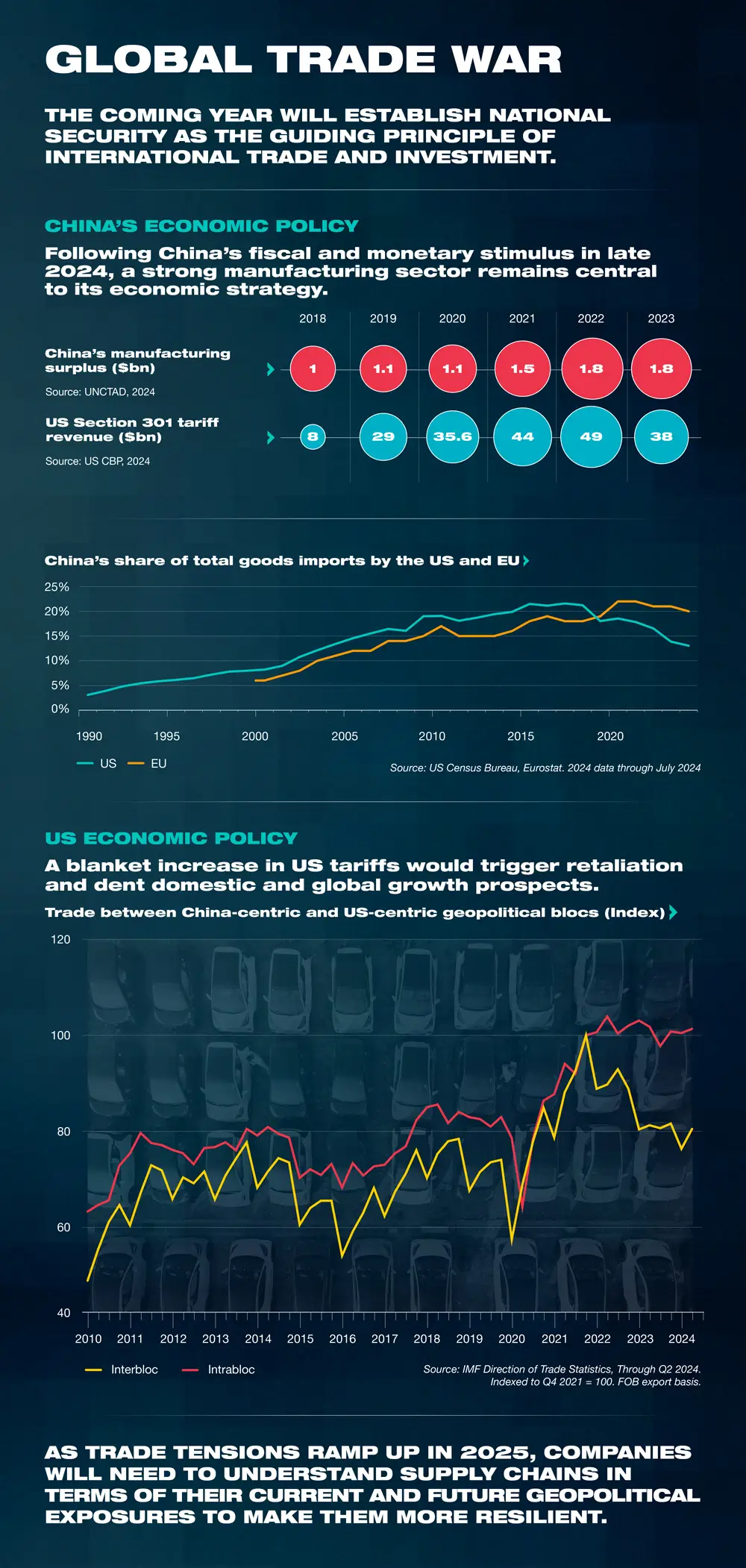
Beyond the Scoreboard: The Massive Economic Impact of Global Sporting Events
The roar of the crowd, the thrill of competition, the unforgettable moments of victory and defeat – global sporting events like the Olympics, the FIFA World Cup, and the Super Bowl capture the hearts and minds of billions worldwide. But beyond the athletic spectacle, these mega-events are powerful economic engines, generating enormous revenue, creating jobs, and leaving a lasting mark on host cities and nations.
For beginners, understanding the "economic impact" simply means looking at how money moves and changes hands because of these events. It’s about more than just ticket sales; it’s a complex web of tourism, infrastructure, media, and much more.
Let’s dive into the fascinating world of how global sporting events fuel economies.
The Immediate Financial Surge: A Wave of Visitor Spending
When a global sporting event comes to town, it’s like opening a giant magnet for tourists, fans, and media from all corners of the globe. This influx of visitors creates an immediate and substantial economic boost.
-
Tourism & Visitor Spending: The Gold Rush
- Accommodation: Hotels, guesthouses, and even private rentals see a massive surge in bookings, often at premium rates. This directly benefits property owners and staff.
- Food & Beverage: Restaurants, cafes, bars, and street vendors experience booming sales as visitors explore local cuisine and celebrate victories.
- Transportation: Airlines, taxis, ride-sharing services, and public transport systems are heavily utilized as people travel to and from venues, and explore the host city.
- Retail & Souvenirs: Shops, especially those selling official merchandise, local crafts, and everyday necessities, see increased customer traffic and sales. Visitors want to take a piece of the experience home with them.
- Local Attractions: Many visitors extend their stay to explore the host city’s museums, landmarks, and other tourist spots, bringing additional revenue to these attractions.
-
Job Creation: A Temporary (and Sometimes Permanent) Boom
Hosting a major event requires a colossal workforce. This leads to the creation of thousands of jobs, though many are temporary.- Construction: Building and renovating stadiums, arenas, and related infrastructure (roads, public transport) creates jobs for architects, engineers, construction workers, and laborers for years leading up to the event.
- Hospitality & Services: Hotels need more front desk staff, cleaners, and chefs. Restaurants hire more waiters and cooks. Security personnel, event ushers, ticket takers, and customer service representatives are in high demand.
- Media & Marketing: Journalists, broadcasters, photographers, event planners, and marketing specialists are crucial for promoting and covering the event.
- Logistics & Transport: Drivers, warehouse staff, and logistics coordinators are needed to move equipment, merchandise, and people.
- While many of these jobs are temporary, some can lead to permanent roles or provide valuable experience for future employment.
Long-Term Investments & Benefits: Building for the Future
The economic impact of global sporting events isn’t just about the immediate spending. Host cities often undertake significant development projects that leave a lasting legacy.
-
Infrastructure Development: A Modern Makeover
- Sporting Venues: New stadiums and arenas are built, or existing ones are upgraded to world-class standards. These facilities can then be used for future sporting events, concerts, or community activities.
- Transportation Networks: Roads are improved, new subway lines or bus routes are added, and airports are expanded to handle the increased visitor traffic. These improvements benefit residents long after the event.
- Public Services: Utilities like water, electricity, and telecommunications often receive upgrades to handle the demand, benefiting both residents and businesses.
- Urban Regeneration: Often, event infrastructure is built in previously underdeveloped areas, sparking regeneration and new housing or commercial developments.
-
Branding & Global Exposure: Putting Cities on the Map
- Increased Tourism: The massive media coverage of an event showcases the host city to a global audience. This exposure can spark interest in visiting the city in the future, boosting long-term tourism.
- Foreign Investment: A successful event can signal to international businesses that the host city is stable, capable, and a good place to invest, potentially attracting new companies and jobs.
- Improved Reputation: Successfully hosting a mega-event can enhance a city’s or country’s international reputation, making it more attractive for business, tourism, and even future bids for other major events.
- Civic Pride: Hosting a major event can foster a strong sense of pride and community spirit among residents, which can have intangible but valuable social benefits.
The Big Business of Sports: Behind-the-Scenes Revenue Streams
Beyond visitor spending and infrastructure, huge sums of money are generated through the commercial aspects of these events.
-
Media Rights & Sponsorships: The Billion-Dollar Deals
- Television & Streaming Rights: Broadcasters and streaming services pay astronomical sums to acquire the rights to show these events to their audiences worldwide. This is often the single largest revenue generator for event organizers.
- Corporate Sponsorships: Major global brands pay huge amounts to associate their names with these events. Their logos are everywhere – on uniforms, stadium banners, and in commercials – reaching billions of potential customers.
- These deals not only fund the event itself but also contribute to the overall wealth of the sporting organizations (like the IOC for the Olympics or FIFA for the World Cup), which then reinvest in sports development globally.
-
Merchandise & Licensing: Wearing the Brand
- Official Merchandise: Sales of jerseys, hats, scarves, keychains, and other memorabilia featuring event logos and team colors generate significant revenue.
- Licensing: Companies pay fees to use event logos or imagery on their products, from video games to snack foods, further extending the event’s economic reach.
The Flip Side: Costs and Controversies
While the economic benefits are substantial, it’s crucial to acknowledge that hosting global sporting events also comes with significant costs and potential downsides.
- High Costs & Debt: Building and upgrading infrastructure is incredibly expensive. Host cities often incur massive debts that can take years, or even decades, to repay. The cost can sometimes outweigh the direct economic benefits.
- "White Elephants": Unused Venues: Sometimes, newly built stadiums or facilities are not easily repurposed after the event and become expensive to maintain "white elephants" – costly assets with little practical use.
- Displacement & Social Impact: Large-scale construction projects can sometimes lead to the displacement of local residents or businesses, particularly in lower-income areas.
- Security Concerns: Ensuring the safety of athletes and spectators requires immense security efforts, which come with a hefty price tag.
- Environmental Impact: The construction, travel, and waste generated by such large events can have a significant environmental footprint.
Real-World Examples: A Glimpse at the Numbers
- London 2012 Olympics: Estimated to have contributed around £16.5 billion (approx. $20 billion USD) to the UK economy between 2005 and 2012, and spurred significant regeneration in East London.
- FIFA World Cup (Brazil 2014 & Qatar 2022): While generating billions in revenue for FIFA, the host countries faced immense infrastructure costs. Brazil spent over $11 billion, and Qatar reportedly spent over $200 billion on infrastructure, far exceeding any direct revenue generated during the tournament itself. The long-term impact on tourism and investment is still being assessed.
- Super Bowl (USA): A single Super Bowl can bring hundreds of millions of dollars in economic impact to the host city over just a few days. For example, Super Bowl LVIII in Las Vegas was projected to generate over $500 million in economic benefits.
Conclusion: A Powerful, Complex Economic Force
Global sporting events are undeniably powerful economic forces. They bring a whirlwind of money, jobs, and development to host regions, generating excitement and global attention. From the immediate boost of tourism and job creation to the long-term benefits of improved infrastructure and global branding, the economic ripple effects are vast and varied.
However, it’s also clear that these events are a double-edged sword. The immense costs and potential for "white elephants" or social disruption mean that careful planning, transparency, and a focus on sustainable legacy are crucial for host cities to truly benefit.
As the world of sports continues to grow, so too will its economic footprint. Understanding this complex interplay between sport and money is key to appreciating the full impact of these captivating global spectacles.




Post Comment